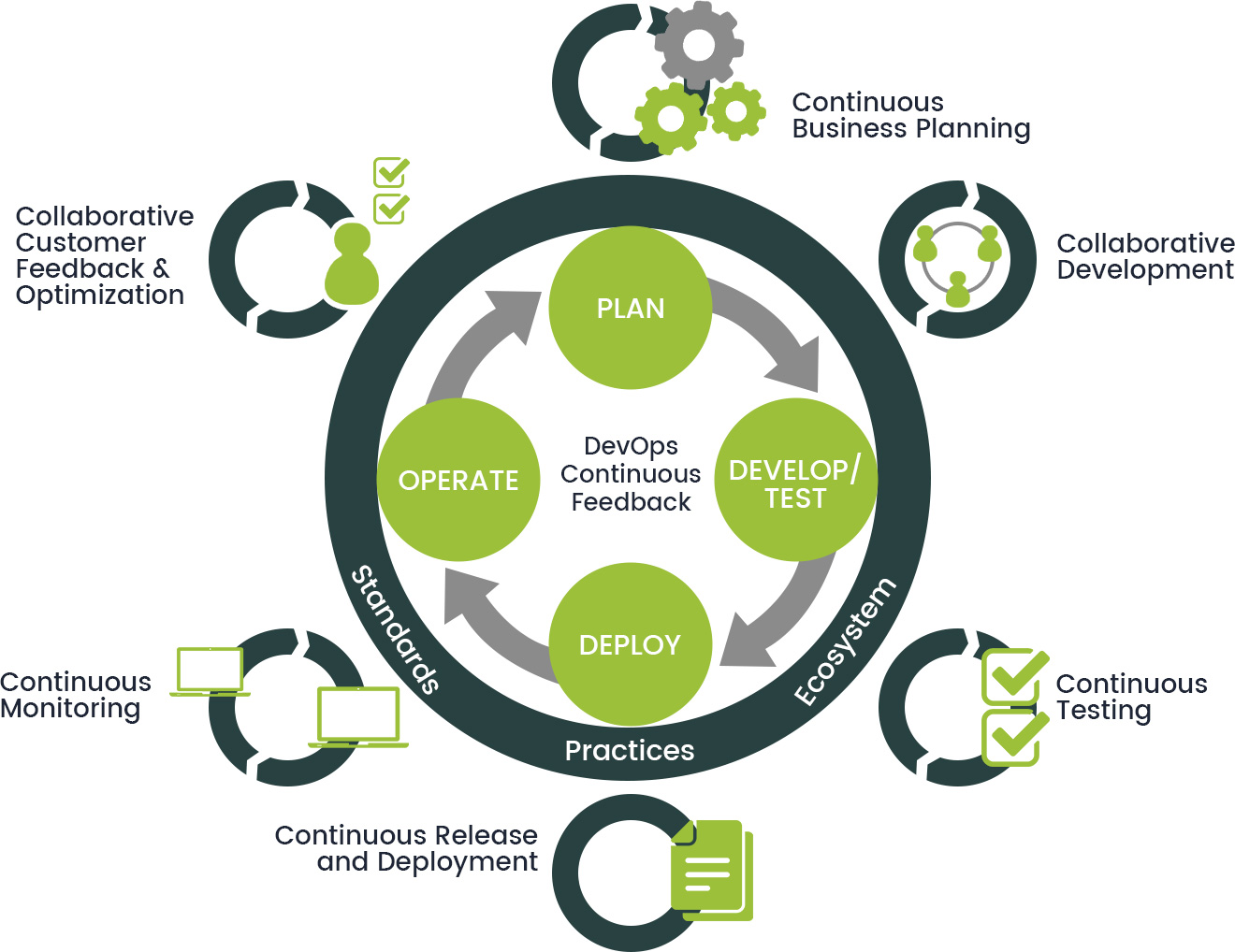
We implement powerful tools to automate and set-up an end-to-end product development lifecycle, including continuous integration and continuous delivery pipeline to accelerate the growth and speed of the business functions of our clients. Our results driven team specialises in cloud architectures and simplifying the development process of a business leveraging
the benefits of clouds to carry out all the transactions in a more secure and efficient manner.
A fast-paced business must be built on a foundation of systems and processes that are scalable, responsive, and of high performance. Our cloud migration services adhere to the latest cloud security best practices and are based on a reliable framework.
We automate routine, repeating tasks such as provision, configuration, deployment and designing applications with task reduction for increased stability.
DevOps Best Practices
- Focus on your own specific business drivers for Digital Transformation; perhaps it’s delivering better software cheaper and faster, diversifying into new markets or innovating ahead of the competition.
- Win over C-level executives and employees enterprise wide by successfully adopting DevOps for one project then as confidence grows and the processes and culture are accepted roll it out further.
- Reward success and avoid a blame culture is essential to DevOps success, if things go wrong the different teams need to pull together to fix it fast.
- Move to cross-functional teams and introduce automation where it is most needed and likely to succeed. These are the cornerstones to success.
- After training, enable your teams to work autonomously with a self-service capability to provision their own architecture and develop tooling frameworks.
- A bottom up approach is best for both better code and the flow of innovation, so enable developers to use trusted and proven open source APIs and take advantage of containerisation for standardisation and efficiency in any environment.
- Don’t be tempted to centralise or you will end up with your DevOps team itself operating in a silo, which is fatal. Instead create a DevOps team for each line of business.
- Remember that your ultimate goal is continuous integration and continuous delivery.
- Make use of the cloud to create test environments that closely match production, accessible on demand and easy to scale up or down.
- Abolish the stress and risk of big releases and break apps down into manageable microservices to be developed, tested and deployed individually. Create an automated framework that is right for your specific business and audit regularly to ensure ongoing efficiency.

